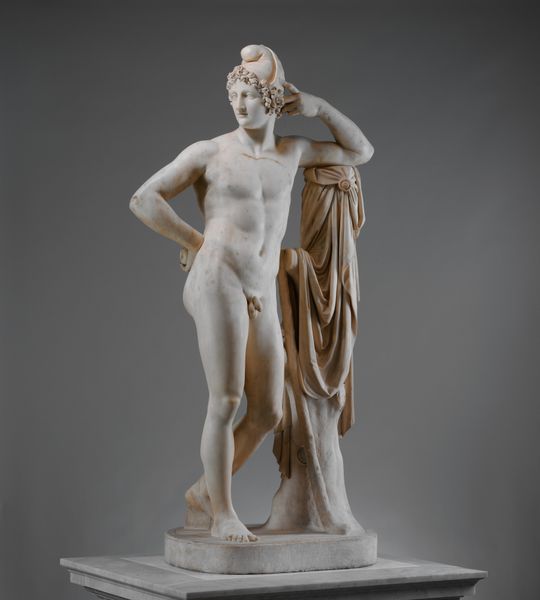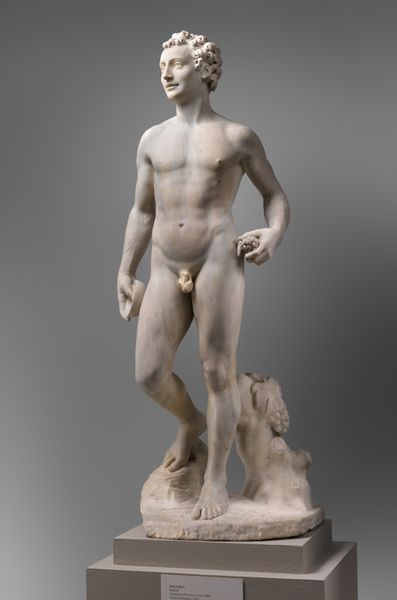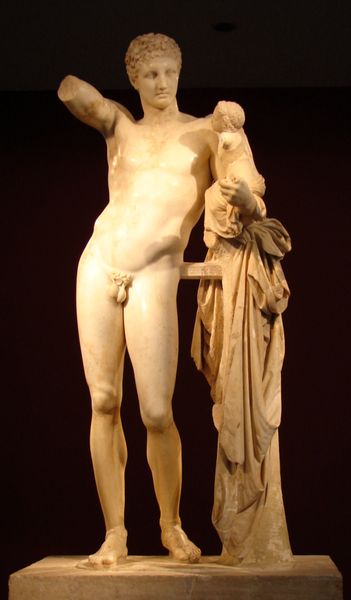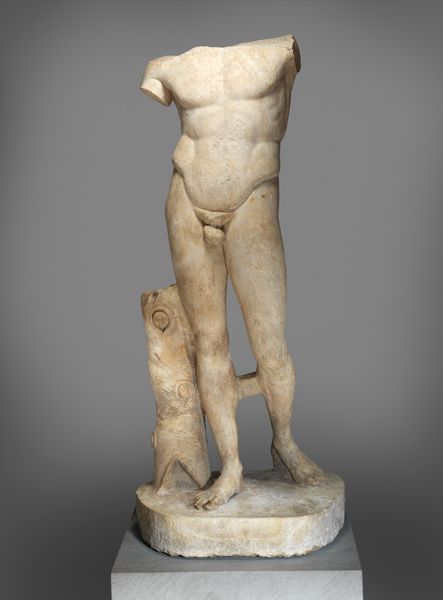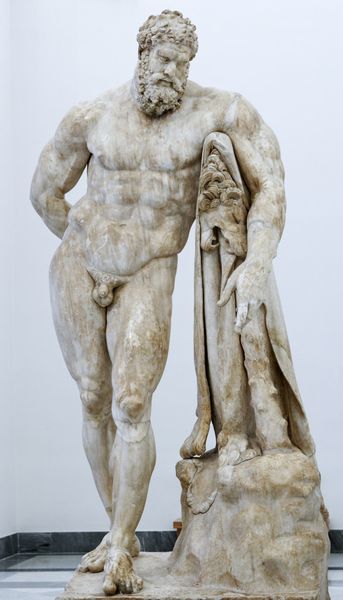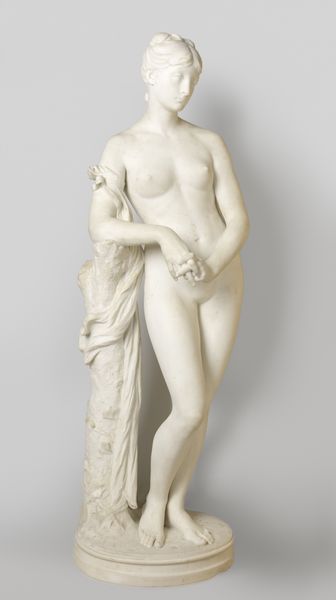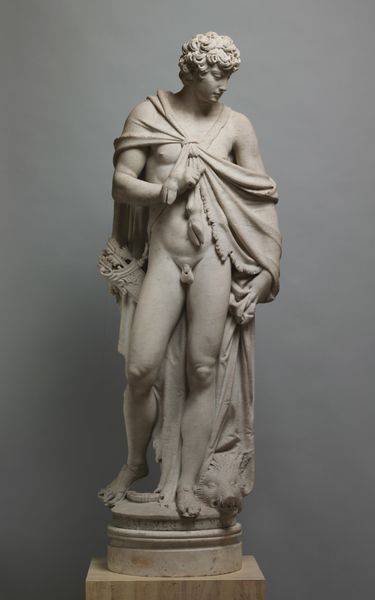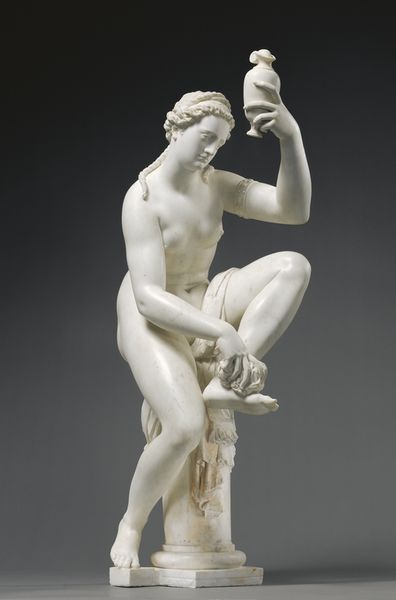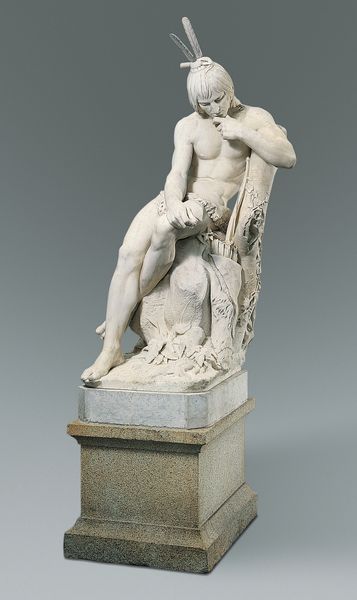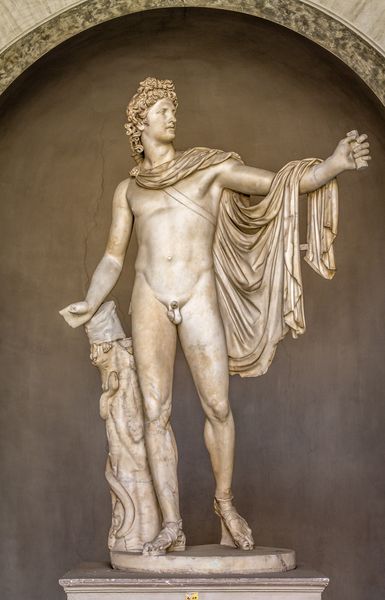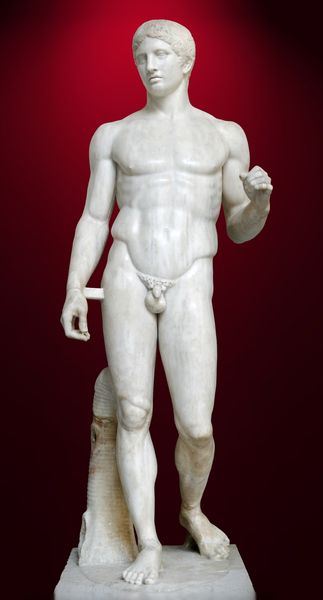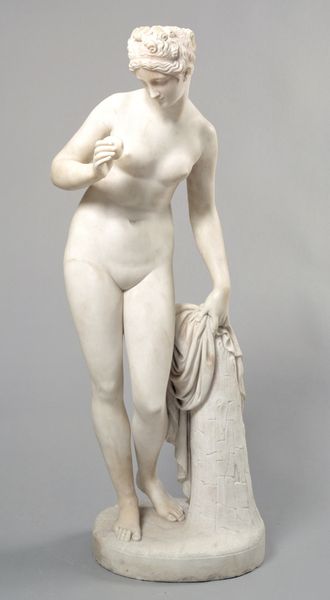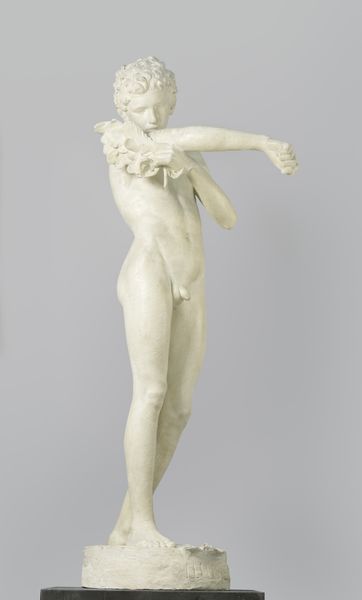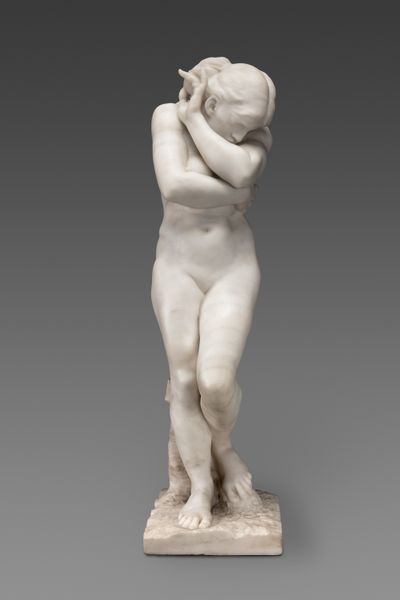
sculpture, marble
#
classical-realism
#
figuration
#
sculpture
#
history-painting
#
academic-art
#
marble
#
nude
#
realism
Dimensions: height 216 cm, width 112 cm, depth 80 cm, weight 1050 kg
Copyright: Rijks Museum: Open Domain
Editor: Here we have Ferdinand Leenhoff's "Perseus," crafted in 1882 from marble. It's so smooth and idealized; a classical hero made tangible. I'm struck by the contrast between the subject's raw humanity and the labor required to bring it forth. How would you interpret this piece? Curator: What's interesting to consider here is the socio-economic conditions that made a piece like this possible. Marble wasn't easily accessible, nor was the skill to carve it so flawlessly. Think of the labor involved in quarrying, transporting, and sculpting the stone. How does that inform our understanding of "heroism" in this context? Editor: So, instead of simply celebrating Perseus as a mythical figure, we're also considering the systems of production and the value of skilled labour that enabled the creation of his form? Curator: Precisely! This wasn't simply divinely inspired art. Someone had to physically extract the marble, someone had to design the work, someone had to move the marble, and someone with specific training then transformed raw materials into this specific shape. Consider, too, who this was commissioned for. Who could afford such a display of skill and material wealth, and what did this object symbolize for them? The act of patronage itself says something. Editor: That completely shifts how I see the statue. The hero now also represents the society and the resources that went into his making, beyond his symbolic narrative. Curator: Absolutely. It allows us to see how art and culture were deeply entwined with power structures, resource management, and craft traditions. It raises a question about whose stories get told through the most laborious and expensive means. Editor: I never considered a marble sculpture this way. Thanks, that gave me so much to think about! Curator: Indeed, sometimes focusing on materials leads us to bigger societal insights.
Comments
No comments
Be the first to comment and join the conversation on the ultimate creative platform.
